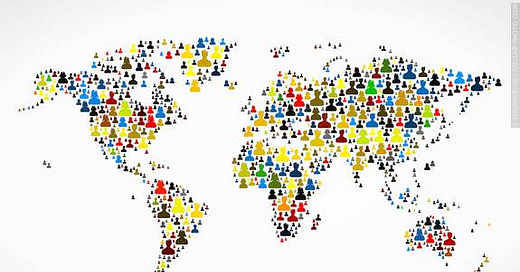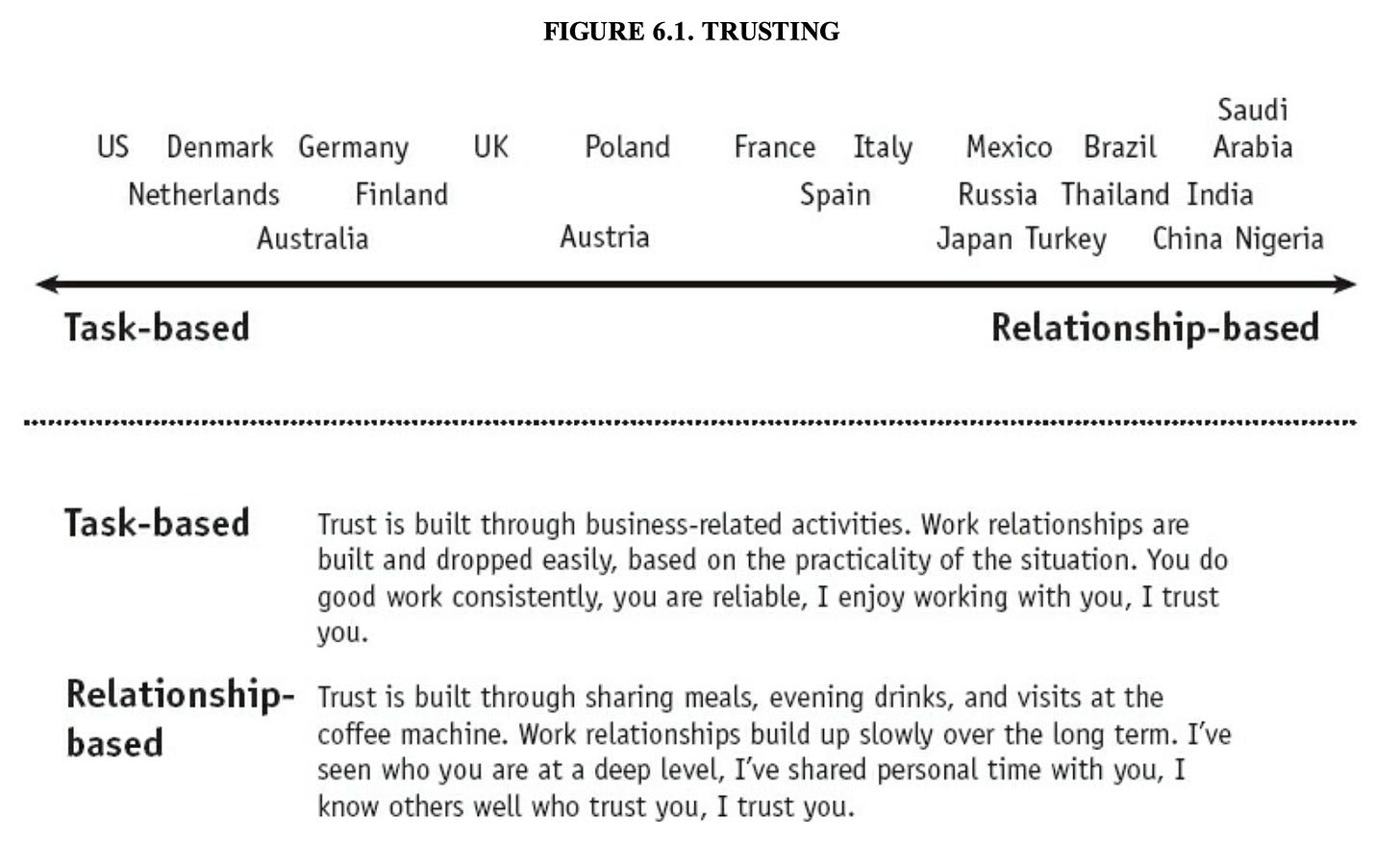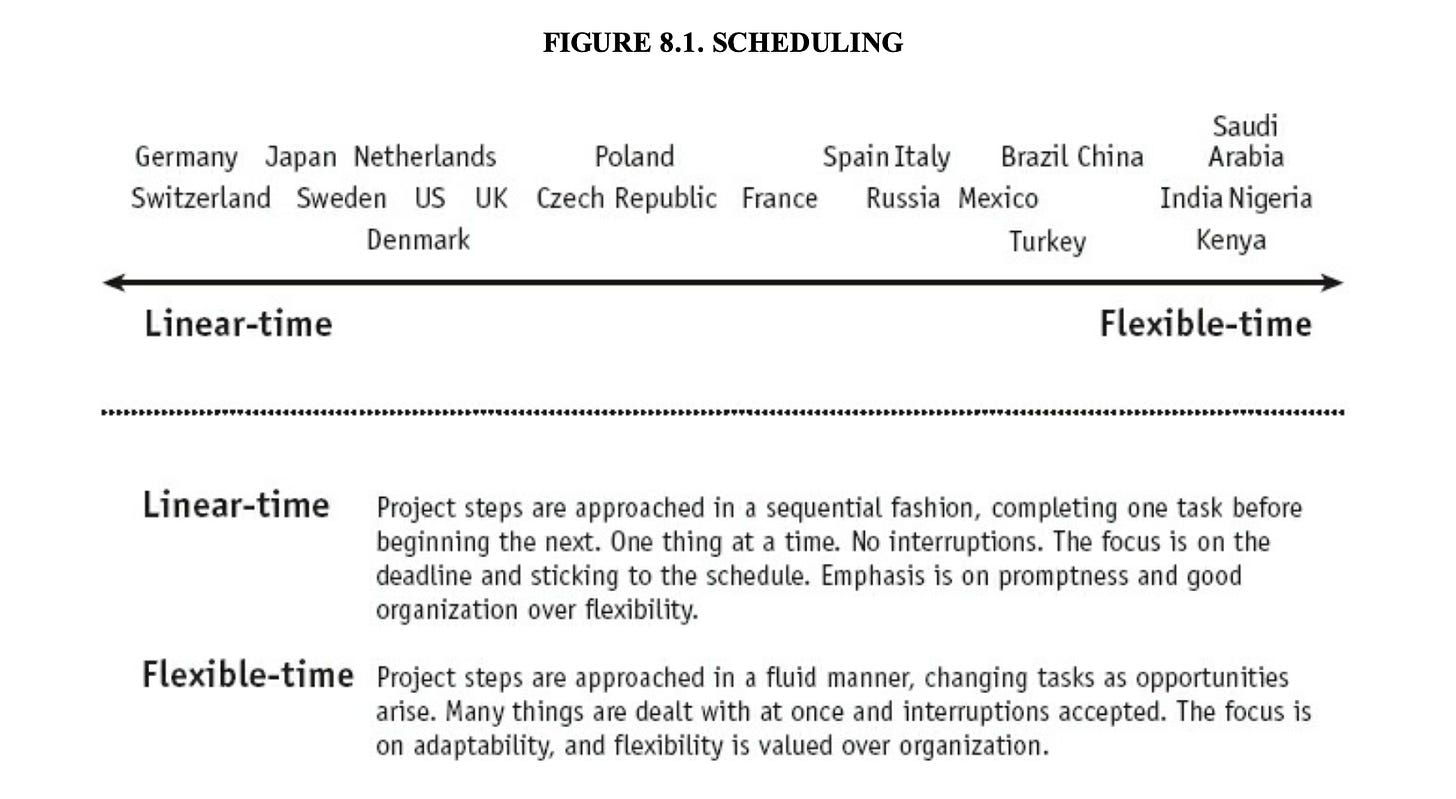Cultural differences when doing business in Dubai and how to adapt
Do you know the book "The Culture Map"? It recently inspired me to think more about the cultural differences I experience in Dubai, as a born European. And there's one I really hope we could overcome.
Wow, many new subscribers this week😍 Welcome to the family, 47 new startup folks 👋
When it comes to Dubai and culture, it’s a mix of everything😅. You have people from all corners of the world. They not only have different dialects you have to learn to understand (as almost nobody is a native English speaker) but you also have to understand their backgrounds and culture they came from.
This can get a bit messy when you get in touch with a different nationality every 5 minutes. So, in the globalized world, being able to work effectively across cultures isn't a luxury; it's a necessity.
And The Culture Map book by Erin Meyer helped me to understand some patterns in communication I wasn’t able to put into words before.
So here is my summary, the key learnings and insights I took from this book as an European living in Dubai and how I deal with them.
Indirect communication is a standard:
Europeans tend to favor clear, direct communication, while Arab and Indian cultures (the majority of the UAE) often lean towards indirect, context-rich conversations. This can be tricky when doing business - you have to learn how to read between the lines. Being straight forward isn’t the thing here and you’d need to ask many additional questions to make sure you’re on the same page.
Failure as a secret:
In Europe, we love confrontation, sharing feedback and embracing our failures. We see it as a learning opportunity. Sharing feedback in front of a team, challenging your boss, are almost normal daily interactions. Well, in the Middle East, failures are often kept secret. This is something I really miss here and hope the culture will get more open towards failures and learnings. It’s also one of my missions with this newsletter.
I’ve learned there were even attempts to do Startup F*ckup Nights in Dubai, but founders just didn’t want to speak in public about their failed businesses. Let’s try it again in 2 years ;).
Respect the hierarchy:
Middle Eastern culture has strong hierarchical structures, affecting decision-making processes, that tend to be slower. In contrast, European culture promotes equality, where leaders play roles of facilitators. This is especially important to understand if you hold a leadership position in this region - you are expected to know the answers and hold a strong position for the team. In general, be mindful of the hierarchy in the room during discussions and adapt your approach accordingly. And always respect official/governmental authorities (something we’re definitely not doing in Europe).
Decision after relationship:
Europeans often prioritize efficiency and quick decisions, whereas in the Middle East, people place a higher value on relationship-building before making choices. Allow time for this in your business deals with local counterparts and be prepared for a more gradual decision-making process. You probably won’t sign you deal on a first meeting. Most of the time, you have to meet over a coffee, have a personal chat, meet again and than proceed with the deal.
Trust the human:
In Europe, trust is often based on competency, while in the Middle East, it's built through personal relationships. Invest time in building personal connections with your colleagues and partners to gain trust. You might be the smartest person in the world, but if you won’t reveal yourself as a person, people will find difficult to trust you.
Time is relative:
If you’d have a meeting with a German at 5pm and come at 5pm, you’re already late. In Dubai or Middle East in general, timing definitely isn’t precise. Adjust your expectations and don’t find it rude if somebody arrive 15 minutes late. Same applies with deadlines.
This articles, same as the book, isn’t about putting people in boxes. Cultural differences matter because we tend to project our own cultural norms onto others. This is natural. And with empathy, you can overcome most of these challenges.
Especially Dubai is so mixed with cultures and many people have international experience. So all of this helps to make the interactions easy even for someone who isn’t used to the Arab world.
The only thing I really hope we’ll overcome is the openness towards failures and learning from each other mistakes. Especially in the startup world, having a safe environment to fail is crucial.
Don’t be scared by cultural differences, be curious, open-minded and empathetic. The key to successful cross-cultural communication is a willingness to adapt our style.
Want to set up company in the UAE on your own, without overpaying for agents? Use my 9-page guide to start your company and residency in the UAE.
Have a nice weekend and see you again next week!
Kristina








